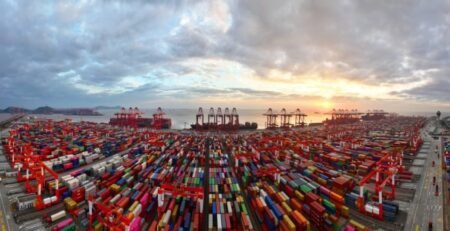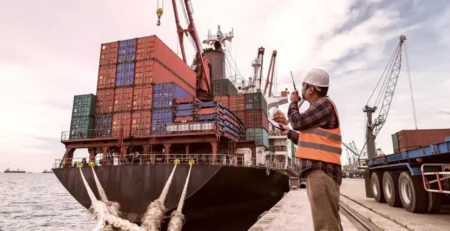MARITIME CRISIS: Thousands of Seafarers Stranded at Sea as Abandonment Cases Surge
By Eva Richardson
March 3, 2025 – The global maritime industry is facing a deepening humanitarian crisis, as reports reveal that thousands of seafarers are being abandoned at sea, unpaid, and left without means to return home. In 2024 alone, 312 vessels were abandoned, affecting over 3,000 crew members worldwide. The crisis exposes major gaps in regulatory enforcement and labor protections for maritime workers.
Seafarers Left Stranded Without Pay
One of the most alarming cases is that of a marine engineer from India, who has been stranded on the tugboat Navimar 3 near Bangladesh for nearly a year. Left without pay, he continues to maintain the vessel to prevent it from sinking, while relying on charities for food and water.
“Every day that passes, I am losing hope. We are trapped here, completely forgotten,” the seafarer told The Logistic News in an exclusive statement.
The case is one of many where shipowners fail to pay salaries, provide food, or arrange repatriation, leaving seafarers in horrific conditions, often without fuel, clean water, or medical assistance.
Why Is This Happening?
According to The International Transport Workers’ Federation (ITF), vessel abandonment has been on the rise due to unscrupulous shipowners exploiting loopholes in international law. Many owners simply register their ships under flags of convenience—jurisdictions with lax labor laws—allowing them to evade responsibility when financial difficulties arise.
Glyn Hughes, Director General of The International Air Cargo Association (TIACA), warns that this crisis threatens global supply chains: “Seafarers are the backbone of international trade. If we fail to protect their rights, we risk severe disruptions to maritime logistics and increased safety risks at sea.”
The Legal Gaps and Lack of Enforcement
While the Maritime Labour Convention (MLC 2006) is supposed to protect seafarers’ rights, many governments fail to enforce it, leaving abandoned workers with little recourse. In cases where ships are owned by shell companies, tracking down responsible parties becomes almost impossible.
Industry advocates argue that stronger international regulations and more rigorous port state controls are needed to prevent abandonment and hold shipowners accountable.
The Role of Charities and NGOs
With authorities often slow to act, charities and seafarer welfare organizations have stepped in to provide emergency relief. Groups like The Mission to Seafarers and ITF Seafarers’ Trust are delivering food, clean water, and legal aid to stranded crew members.
“This is a humanitarian crisis. Without urgent intervention, more lives will be put at risk,” said John Adams, Director of The Seafarers’ Union, in an interview with The Logistic News.
What’s Next?
Maritime organizations are now calling for:
- A global emergency fund to support abandoned seafarers.
- Stricter accountability measures for shipowners operating under flags of convenience.
- Faster intervention protocols for repatriating stranded workers.
With abandonment cases reaching alarming levels, the world’s major shipping regulators and international bodies must act fast to ensure seafarers are not left forgotten at sea.
For more exclusive updates on maritime labor rights and global logistics, stay tuned to The Logistic News.
The post MARITIME CRISIS: Thousands of Seafarers Stranded at Sea as Abandonment Cases Surge appeared first on The Logistic News.
Share this post
Related
Posts
Surge in Asian Air Cargo Forces Airlines to Reprioritize Global Routes
By Maria Kalamatas | July 10, 2025 Bangkok, July 10 — In a move that underscores the pressure on global air...
Asia-Europe Freight Rates Surge Again as Port Congestion Hits Peak
SINGAPORE / 9 JULY 2025 — Shipping rates between Asia and Northern Europe have surged once again this week, reaching...
Shanghai Surges Ahead as Global Shipping Recalibrates
Shanghai, China — 10 July 2025In a month marked by global route upheavals and capacity shifts, the Port of Shanghai...
Argentina, Brazil, and Mexico Fast-Track Regional Freight Agreements
BUENOS AIRES — July 4, 2025Faced with weeks of delayed cargo and unstable ocean routes, Latin America’s biggest economies are...





